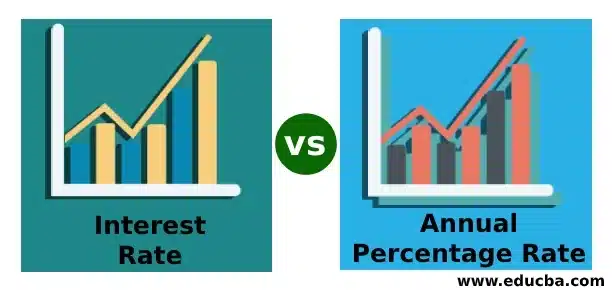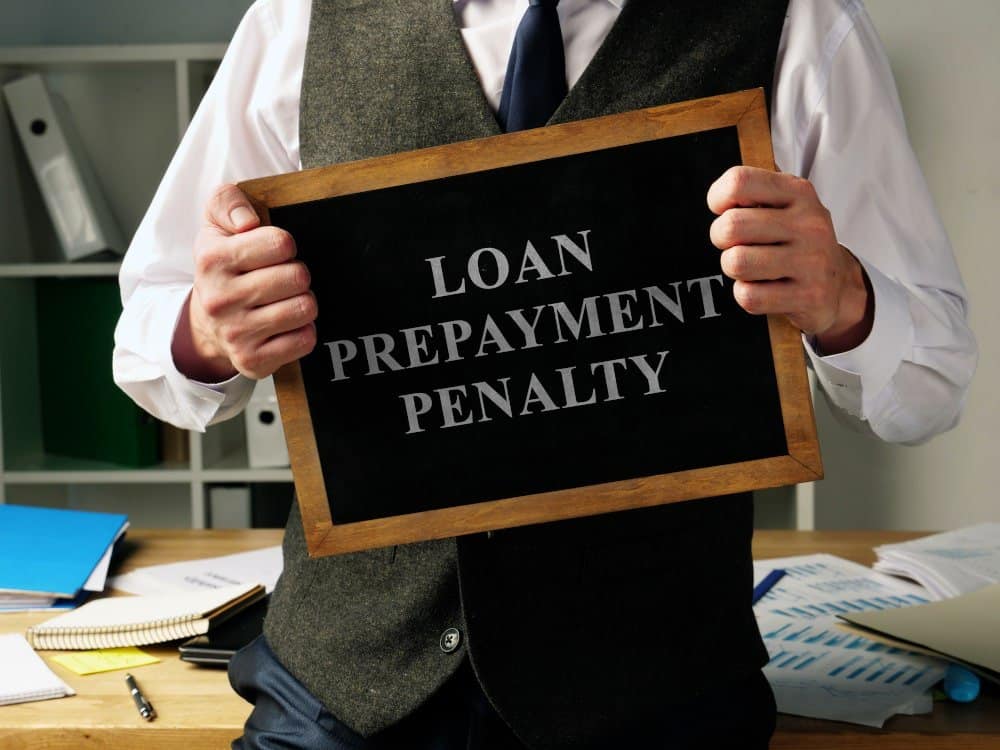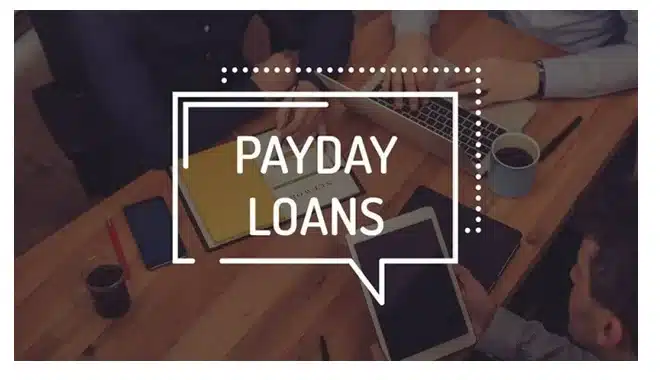When faced with an unexpected financial emergency, many people may feel they have no other choice but to turn to payday loans for help. Payday loans promise quick cash, minimal paperwork, and immediate relief from urgent expenses. However, the appeal of payday loans often fades once the borrower delves into the fine print of the agreement. Unfortunately, many payday loan agreements are riddled with hidden fees, confusing terms, and interest rates that can create a long-lasting financial burden.
In this article, we’ll explore the often-overlooked aspects of payday loan agreements, helping you better understand what you’re agreeing to when you sign on the dotted line. Understanding these details is essential if you want to make an informed decision and avoid falling into the trap of excessive debt.
Key Takeaways:
- Payday loans have high-interest rates and short repayment terms, often leading to a cycle of debt.
- Reading the fine print is crucial to understanding the full cost of the loan, including fees and penalties.
- Rollovers and late fees can significantly increase the cost of the loan.
- Shop around and compare lenders to find better terms and lower fees.
- Consider alternatives to payday loans, such as personal loans, credit union loans, or assistance from family and friends.
What is a Payday Loan?
Before we dive into the fine print, it’s important to first understand what payday loans are. A payday loan is a short-term, high-interest loan that’s typically due on your next payday. These loans are designed to help individuals cover urgent expenses until they receive their next paycheck. The amount borrowed can range from $100 to $1,000, and the loan is usually repaid in full on the borrower’s next payday, along with interest and fees.
Payday loans are appealing due to their speed and convenience. They often require no credit check, making them accessible to individuals with poor or limited credit histories. However, payday loans come with significant risks, and their fine print can reveal just how expensive they can be.
Common Terms in Payday Loan Agreements
Payday loan agreements can be difficult to understand, especially for borrowers who may not have extensive financial knowledge. Below are the key terms commonly found in payday loan contracts:
Loan Amount
The loan amount is the total sum of money you are borrowing. Payday loans are typically small loans, often ranging between $100 and $1,000. The amount you borrow is generally based on your income, with lenders offering loans up to a certain percentage of your monthly earnings. While the loan amount might seem small, the fees and interest rates can make the loan far more expensive.
Loan Term
Payday loans come with very short repayment terms, usually due on your next payday or within 14 days. This short repayment period is one of the main reasons payday loans are so risky. Borrowers may struggle to repay the full amount in such a short time, and they often end up borrowing again just to pay off the previous loan. Some payday lenders may also offer extended repayment terms for an additional fee.
Interest Rate and APR

The interest rate on payday loans is notoriously high, with annual percentage rates (APR) often exceeding 400%. The APR represents the cost of borrowing on an annual basis, including both the interest rate and any additional fees. Payday loan interest rates can be difficult to calculate since the loan term is so short, but the APRs are typically much higher than other forms of credit.
Fees
Payday lenders often charge hefty fees for the service they provide. These fees may include loan origination fees, processing fees, and non-sufficient funds (NSF) fees if the borrower is unable to repay the loan on time. If you roll over the loan or extend the loan term, additional fees may be added, making it more difficult to pay off the loan.
Repayment Terms
The repayment terms in payday loan agreements are often the most critical aspect of the loan. Many payday loans require repayment in a lump sum on the borrower’s next payday, while others may allow for partial payments or rollovers. It’s important to review how the repayment schedule works to avoid late fees, extra charges, or the possibility of your loan being sent to collections.
Rollovers and Renewals
If you are unable to repay the payday loan by the due date, many payday lenders will offer you the option of rolling over the loan. This means you can extend the loan term, but you will be charged additional fees and interest. Rollovers can quickly lead to a cycle of debt, where the borrower continuously extends the loan, paying fees without ever making significant progress on the principal.
Early Repayment Penalties

Some payday lenders include clauses in their agreements that penalize borrowers for repaying the loan early. These early repayment penalties can reduce the benefits of paying the loan off ahead of schedule, leading to more financial strain in the long run.
Default Clauses
If you fail to repay the loan according to the terms, the lender may take legal action or send the loan to collections. Defaulting on a payday loan can severely damage your credit score and lead to additional fees and interest, increasing the overall cost of the loan.
Hidden Costs and Risks in Payday Loan Agreements
While the interest rates and fees in payday loan agreements are often clearly stated, there are other hidden costs and risks that may not be immediately obvious to borrowers. These hidden costs can make payday loans far more expensive than they appear at first glance.
High Loan Fees
In addition to the interest rates, payday lenders often charge a variety of fees that can make the loan more expensive. Common fees include:
- Origination Fees: Charged when the loan is processed, these fees can be a percentage of the loan amount or a flat fee.
- Late Payment Fees: If you miss a payment, the lender may charge you an additional fee for each day or week you are late.
- NSF Fees: If there are insufficient funds in your bank account to cover the loan repayment, you may be charged a fee for non-sufficient funds, often as high as $30 to $50.
These fees can quickly add up and make the loan significantly more expensive than originally anticipated.
The Debt Cycle
One of the biggest risks of payday loans is the potential for borrowers to fall into a debt cycle. When borrowers are unable to repay the loan by the due date, they may take out additional payday loans to cover the original loan. This cycle of borrowing and repaying can continue indefinitely, with the borrower paying fees without making any progress on the original loan balance. This is a common problem for people who rely on payday loans as a financial solution.
Impact on Credit Score

While payday lenders typically do not report directly to the credit bureaus, if the borrower defaults on the loan or the loan is sent to collections, it can negatively impact their credit score. Having a low credit score can make it more difficult to secure financing in the future, and borrowers may face higher interest rates on future loans.
Legal Consequences
If you default on your payday loan, the lender may take legal action. This could involve garnishing your wages or seizing assets in extreme cases. Legal actions can result in additional costs, such as court fees or attorney fees, further exacerbating your financial situation.
How to Protect Yourself When Signing a Payday Loan Agreement
If you are considering taking out a payday loan, there are several steps you can take to protect yourself from falling victim to hidden fees and high-interest rates. Here’s how you can ensure that you fully understand the agreement and minimize the risks involved:
Read the Fine Print
Before agreeing to a payday loan, always read the fine print carefully. This includes the interest rates, fees, repayment terms, and any penalties for late payment or early repayment. Make sure you fully understand the cost of borrowing and how the loan will affect your finances.
Compare Lenders
Don’t settle for the first payday lender you come across. Shop around and compare the terms and fees of different payday lenders. Some lenders may offer lower interest rates or more flexible repayment terms, making the loan less expensive in the long run.
Check for Hidden Fees
Payday loan agreements often include hidden fees, such as origination fees, late payment fees, or rollover fees. Make sure these fees are clearly outlined in the agreement, and consider whether you can afford them.
Avoid Rollovers
Rolling over payday loans is a common practice, but it only increases the overall cost of the loan. If possible, avoid rolling over the loan and try to pay it off as soon as possible to minimize fees.
Set a Repayment Plan
Before taking out a payday loan, create a clear repayment plan. Know when the loan is due and ensure that you have the funds to repay it. If you are unable to pay the loan in full, consider other alternatives, such as negotiating with the lender for an extended payment plan.
Why Payday Loans Are a Last Resort
When financial emergencies arise, many people consider payday loans as a quick and easy solution to cover unexpected expenses. With minimal paperwork, rapid approval, and no credit checks, payday loans offer instant relief when you need it most. However, while they might seem like an attractive option in the short term, payday loans come with significant downsides that can quickly turn them into a financial burden. In fact, payday loans should only be considered as a last resort due to their high costs, short repayment periods, and potential to create long-term debt.
In this article, we’ll examine why payday loans are often considered a last resort, how they work, the risks involved, and alternatives that may be more suitable for managing financial challenges.
Why Payday Loans Are a Last Resort
When financial emergencies arise, many people consider payday loans as a quick and easy solution to cover unexpected expenses. With minimal paperwork, rapid approval, and no credit checks, payday loans offer instant relief when you need it most. However, while they might seem like an attractive option in the short term, payday loans come with significant downsides that can quickly turn them into a financial burden. In fact, payday loans should only be considered as a last resort due to their high costs, short repayment periods, and potential to create long-term debt.
In this article, we’ll examine why payday loans are often considered a last resort, how they work, the risks involved, and alternatives that may be more suitable for managing financial challenges.
What Are Payday Loans?
Before diving into the risks and reasons why payday loans are a last resort, it’s important to understand what they are. A payday loan is a short-term, high-interest loan designed to cover an emergency expense until your next paycheck. These loans typically range from $100 to $1,000 and are usually due in full by the borrower’s next payday, which can be as little as two weeks after the loan is taken.
The process is quick and simple, often requiring only proof of income, a bank account, and a valid identification. Payday loans are attractive to individuals with poor or no credit, as payday lenders usually don’t conduct credit checks. Instead, the loan is based on the borrower’s income and ability to repay by their next payday.
However, despite the convenience and immediate relief payday loans offer, they can quickly spiral into financial difficulties if not carefully managed.
Why Payday Loans Are So Risky
While payday loans are marketed as a quick fix for financial problems, they come with several characteristics that make them a risky borrowing option. Below are the reasons why payday loans are considered a last resort.
Exorbitant Interest Rates and Fees
One of the most concerning aspects of payday loans is the extremely high-interest rates and fees they carry. The average APR (Annual Percentage Rate) on a payday loan can exceed 400% — far higher than other types of credit, such as personal loans or credit cards. In other words, the cost of borrowing through a payday loan can be astronomical.
For example, if you borrow $300 from a payday lender, you might pay a $45 fee. Although this seems manageable in the short term, the APR on that loan could easily exceed 400% when calculated annually. If you don’t repay the loan in full by your next payday, interest and fees will continue to accrue, creating a growing debt that’s difficult to pay off.
Short Repayment Terms
Another reason payday loans are considered a last resort is the short repayment term. Most payday loans are due within two weeks, or on your next payday. This means that the amount borrowed, plus interest and fees, must be repaid in one lump sum on a specific date.
For individuals living paycheck to paycheck, repaying the loan in such a short time frame can be difficult, especially if other urgent financial obligations arise. If you can’t repay the full loan amount by the due date, you may be forced to roll over the loan or take out another payday loan to cover the first one, thus extending the cycle of debt.
The Debt Cycle: Borrowing to Pay Back
One of the most dangerous aspects of payday loans is the potential for borrowers to get stuck in a cycle of debt. Because the repayment term is so short, many borrowers are unable to pay off the loan by the due date. As a result, they may borrow again to pay off the first loan, leading to a snowball effect of borrowing, repaying, and borrowing again.
This cycle of borrowing to cover previous loans can lead to escalating debt, high fees, and significant financial stress. Many borrowers who rely on payday loans find themselves trapped, unable to escape the constant cycle of debt. In fact, a large percentage of payday loan borrowers end up needing another payday loan to cover the initial loan they took out.
Rollovers and Renewals: Additional Fees
When a borrower cannot repay their payday loan on time, payday lenders often offer the option to roll over or renew the loan. Essentially, the borrower pays only the interest and fees due and extends the loan for another period. However, this comes with additional fees and interest, further increasing the total amount owed.
For example, if you borrow $300 and roll over the loan, you may only pay the interest and fees, but the original loan balance will remain. This results in the accumulation of more debt and the borrower’s financial situation becomes worse over time.
Risk of Damage to Credit
While payday lenders typically don’t report to credit bureaus, failure to repay the loan can still damage your credit score. If your payday loan is sent to collections due to non-payment, it will show up on your credit report, negatively affecting your credit score. This can make it harder to qualify for credit in the future, and you may face higher interest rates on other forms of credit.
Moreover, if you end up taking out more payday loans to cover the original debt, your ability to get traditional credit in the future could be compromised.
Legal Consequences of Non-Payment
If you fail to repay a payday loan, the lender may take legal action to recover the amount owed. In extreme cases, the lender could garnish your wages, seize your bank account funds, or take you to court. Legal consequences can be both financially and emotionally draining, adding further strain to an already difficult financial situation.
The Emotional and Mental Toll of Payday Loans
Beyond the financial implications, payday loans can also take an emotional toll on borrowers. The stress of dealing with high-interest debt, rolling over loans, and facing the possibility of legal consequences can lead to anxiety and feelings of hopelessness.
For many borrowers, payday loans represent a constant source of worry. As the debt grows due to high-interest rates and additional fees, the emotional burden can become overwhelming. Borrowers may feel trapped, unable to escape the cycle of debt that payday loans can create.
Alternatives to Payday Loans
While payday loans should be a last resort, there are several alternatives that are safer and more affordable. These options may help you manage your financial difficulties without the risks and costs associated with payday loans:
Personal Loans from Banks or Credit Unions
If you have good credit, a personal loan from a bank or credit union may offer a more affordable alternative to payday loans. These loans typically have lower interest rates and longer repayment terms, making them easier to manage. Additionally, credit unions often offer more favorable terms than traditional banks.
Credit Cards
If you have access to a credit card, using it to cover unexpected expenses can be a better option than taking out a payday loan. Although credit cards may have higher interest rates than personal loans, they still tend to have much lower rates than payday loans. You also have more flexibility in terms of repayment.
Borrowing from Family or Friends
If you have a friend or family member who is willing and able to lend you money, this can be a far better option than taking out a payday loan. While borrowing from loved ones may carry its own risks, it typically comes with no interest or fees, making it a far more affordable solution to your immediate financial needs.
Debt Consolidation Loans
If payday loans have already become a financial burden, a debt consolidation loan may be an option. These loans allow you to combine multiple debts into one payment, often with a lower interest rate than payday loans. This can help you simplify your finances and reduce the total cost of debt.
Emergency Savings Fund
While not an immediate solution, building an emergency savings fund is one of the best ways to avoid relying on payday loans in the future. Having a cushion of savings can help you cover unexpected expenses without having to resort to high-cost borrowing.
When Are Payday Loans an Appropriate Option?
In some situations, payday loans may be an appropriate option, but they should only be used after carefully considering other alternatives. If you are facing a genuine financial emergency and have no other means of obtaining funds, payday loans may be a temporary solution. However, they should never be relied upon as a long-term financial strategy.
Before taking out a payday loan, ask yourself the following questions:
Can I repay the loan in full by my next payday?
Can I find another borrowing option with a lower interest rate?
Am I willing to accept the high costs and fees associated with a payday loan?
Also Read: Alternatives To Payday Loans: Safer Borrowing Options
Conclusion
Payday loans may provide quick relief in times of financial stress, but the fine print in payday loan agreements can reveal just how costly and risky they can be. From high-interest rates to hidden fees and rollover costs, payday loans often create a cycle of debt that is difficult to break. It’s essential to understand the terms of the loan before agreeing to it and to explore other, less expensive borrowing options if possible. By carefully reading the fine print, comparing lenders, and creating a repayment plan, you can minimize the risks associated with payday loans and avoid falling into financial distress.
FAQs
What is the average interest rate on payday loans?
Interest rates on payday loans vary but can be as high as 400% APR. Rates depend on the lender and your state’s regulations.
Can payday loan fees be negotiated?
Some payday lenders may be willing to negotiate fees, especially if you are facing financial hardship. It’s always worth asking for better terms.
What happens if I cannot pay back my payday loan?
If you cannot repay your payday loan, the lender may charge additional fees, roll over the loan, or send it to collections. This can damage your credit score and increase your debt.
Can payday lenders garnish my wages?
In extreme cases, payday lenders can take legal action to garnish your wages if you default on a loan.
Is it possible to get a payday loan with no credit check?
Yes, many payday lenders do not require a credit check. This is why payday loans are often an option for individuals with poor or no credit history.
How can I avoid falling into a payday loan trap?
To avoid falling into a payday loan trap, avoid rollovers, compare lenders, and read the fine print before signing the agreement. Consider alternatives to payday loans, such as personal loans or borrowing from family and friends.
Are payday loans regulated?
Yes, payday loans are regulated at the state level, with each state having its own laws governing payday lending. Some states have imposed limits on interest rates and fees to protect consumers.

